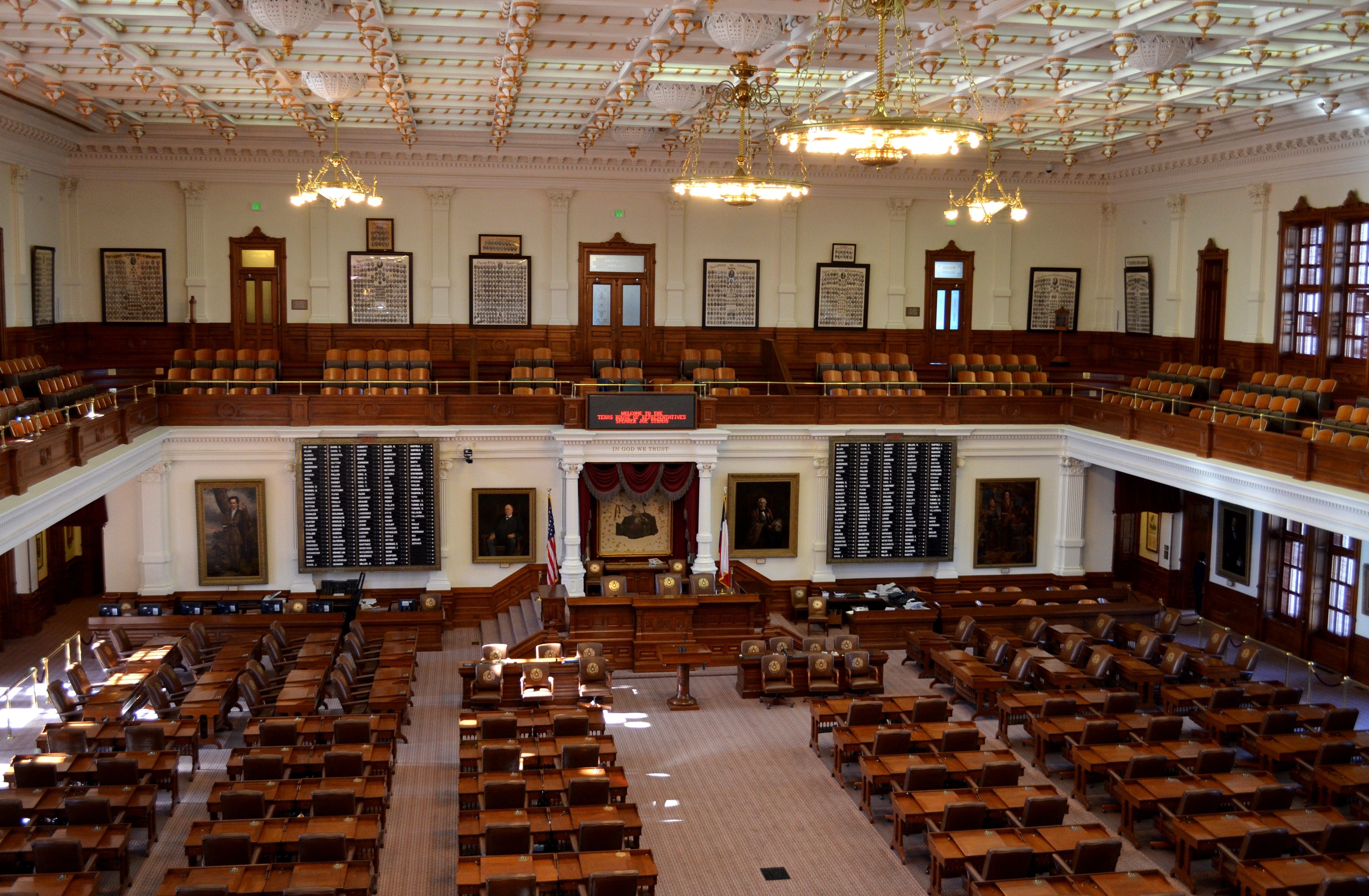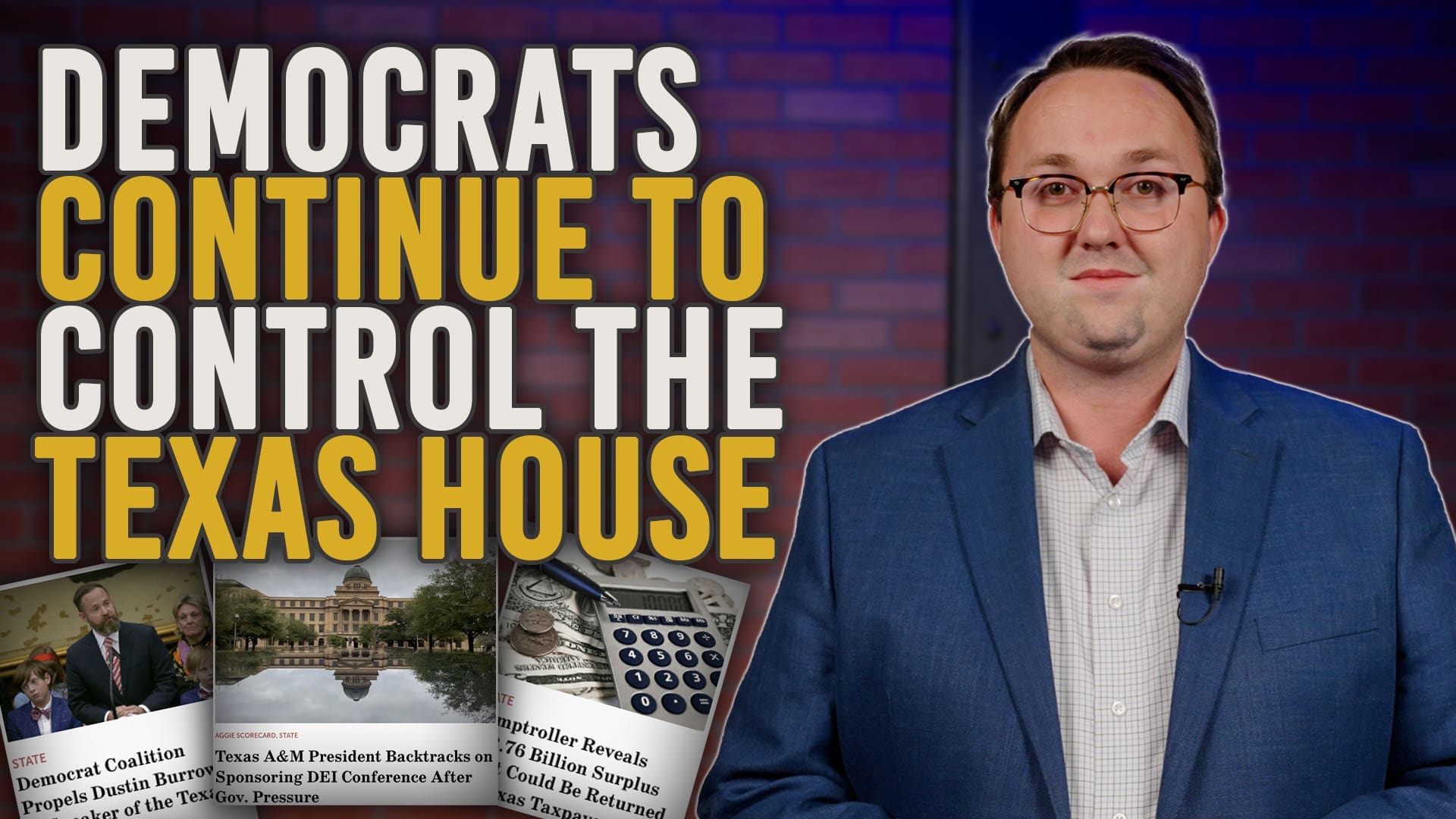What would you call a teaching—a theory, if you will—that labels all people as racist if they belong to a certain race or ethnic group?
Is it sinful to believe and assert, for example, that all people with dark hair are less intelligent than those without, simply due to their hair color? How about asserting that all people of a certain skin coloring are predisposed, systemically, to be or do evil in some way or another?
These ways of thinking are examples of bigotry at first sight and yet are very close, if not fully equal, to what is being spread under the banners of “critical race theory” and “anti-racism,” among other misleading labels.
This clear bigotry is precisely what State Rep. Steve Toth’s (R–Spring) bill, HB 3979, seeks to limit in Texas public schools. And yet, in its Texas Take email newsletter, the San Antonio Express-News described the bill in a misleading manner with this headline: “TX Republicans advance bill restraining school lessons on racism.”
The bill, passed by the House on May 11, does not restrain school lessons on racism, its ugliness, or its existence; the bill attempts to restrain one nasty form of bigotry and racism from being introduced as a supposed cure for another.
According to a Texas Tribune report: “Toth’s legislation says a teacher cannot “require or make part of a course” a series of race-related concepts, including the ideas that “one race or sex is inherently superior to another race or sex,” or that someone is “inherently racist, sexist, or oppressive” based on their race or sex.
The teaching that people are inherently racist because they are white, or other things, too, and that their individual morality and actions play little or no role in such racism is central to “anti-racism” teaching based in “critical race theory.”
These ever more popular teachings assert that racism cannot be helped in certain people, it just exists “systemically,” and other people separate from the targeted-for-scorn group, even when acting overtly racist, are not and cannot be racist.
In and of themselves, inherently, these ideas are the most radical of racist beliefs.
Teaching, or using “critical theory” to inform classroom teaching, that is nasty and bigoted as such is built on exactly the same type of stereotyping, or broad-brush painting, that encourages beliefs that entire races or ethnicities of people are predisposed, or even destined, to such things as low intelligence, violence, sexual promiscuity, or a host of other archetypes used by racists throughout the ages.
These “critical theories” flow from Marxism and the Frankfurt School and, as such, largely reject the concept of the individual will (and responsibility) for that of the collective will. In rejecting individual morality, action, and responsibility, proponents of critical theory engage in exactly that of which they disapprove: the broad-based subjection of groups of people by other groups of people to automatic assumptions of fault. In the case of bigotry and racism, this is what is meant by “systemic racism” by adherents to the “anti-racism” fad.
Such “theory,” actually a leftist divide-to-conquer practice, reinforces the idea of inherent fault in people due to their social “class,” race, ethnicity, religion, or other grouping—the goal of which seems to be as simple as providing pretext for one sinful group of self-thought victims, or occasionally real, an excuse to turn the tables to subject and victimize another group in the same manner.
How does using such ideas help our classrooms or our society? How does talking to children about race issues in a way that doesn’t just suggest, but demands that all are guilty of bigotry and racism through amorphous inherent systemic processes, aid the process of de-popularizing racist thought?
It would seem that telling children—and they will hear it individually, not as a group—that they are inherently racist is likely to instill in many a dangerous and unproductive lifelong angst, and in others, an acceptance they can use to then justify racist thought and action. If one can’t help it, then why not go with the flow? People do seem to opt for that excuse against reform time and again.
The word “justice” is often used by proponents of these critical theory promoters (as in “social justice”), but there is little justice in tit-for-tat, eye-for-an-eye revenge as social or political policy. There is certainly nothing progressive about such in the true sense of the word except progressing toward a bottom of the worst type of hate and tribal warfare where individuals are not seen as the sinners but only nameless, faceless groups of people—meaning you are responsible for the sins of your neighbor, even if you object to such actively.
This is what becomes of all ideas and movements that reject the idea of each individual having a unique soul who will be personally, individually, accountable to God for thoughts, words, and deeds. And such folly leads to the creation in many of what was to be avoided.
If your faults are systemic and merely present because you were born into a certain systemic environment (race, religion, ethnicity, nationality, etc.) then, again, what is the point of bothering with the avoidance of sin or with working to reform your thoughts and actions to a more ethical state? If others are teaching that you are a bigot, violent, hateful, and there is little you can do to avoid the label sticking to you, why bother to be anything else?
Proponents of “anti-racism” and critical race theory are not asking their targets to reject and renounce racism. These movements have little interest in Dr. Martin Luther King Jr.’s colorblind society and one in which people are judged by the content of their individual character. No, instead, they are demanding their targets admit to being racist and bigoted, now and forever, without regard to the personal beliefs and actions of those targets who are, you will remember, not seen as unique individuals but simply cells of a larger organism or group.
This is what my friend, historian and writer Robert Zimmerman means when he opined that one could not find a better way to create a race war than proceeding down the current path the left has taken. Such may well turn a population that has worked to reduce racism for decades into a group that begins to embrace such. My interpretation of his point is, in part, that if whites, Jews, or any other group is so gummed with the racist label, at some point, many in that group will begin to resent those making the accusation to the point that the response will mirror the very racism that was called out to begin with. Is not a state of victimhood what the so-called “anti-racist” critical race theory proponents use to justify their extremes, whether intellectually or in the streets of burning cities?
Evil ideas, those that go against our conscience, are much easier to hold and spread when people are seen not as individuals but as groups. Many soldiers can testify to it being much easier to fire into a large grouping of the enemy than it is to do so one on one and face to face. We see another version of this daily on social media, where perceived distance and anonymity leads to a nastiness significantly more rare in personal interaction between present individuals, especially strangers.
The ideas critical race theory adherents are pushing, like all that springs from Marxism, are destined to produce the opposite result of what they claim to champion. And for the sake of Texas culture, it is our duty to oppose the use of these dehumanizing groupthink stereotypes in our public schools. We need children who recognize the ugliness of racism but who are not branded as racists simply because of the color of their skin or their social background because a bunch of aggrieved followers of Marxist theory says they are.
This is a commentary published with the author’s permission. If you wish to submit a commentary to Texas Scorecard, please submit your article to submission@texasscorecard.com.





